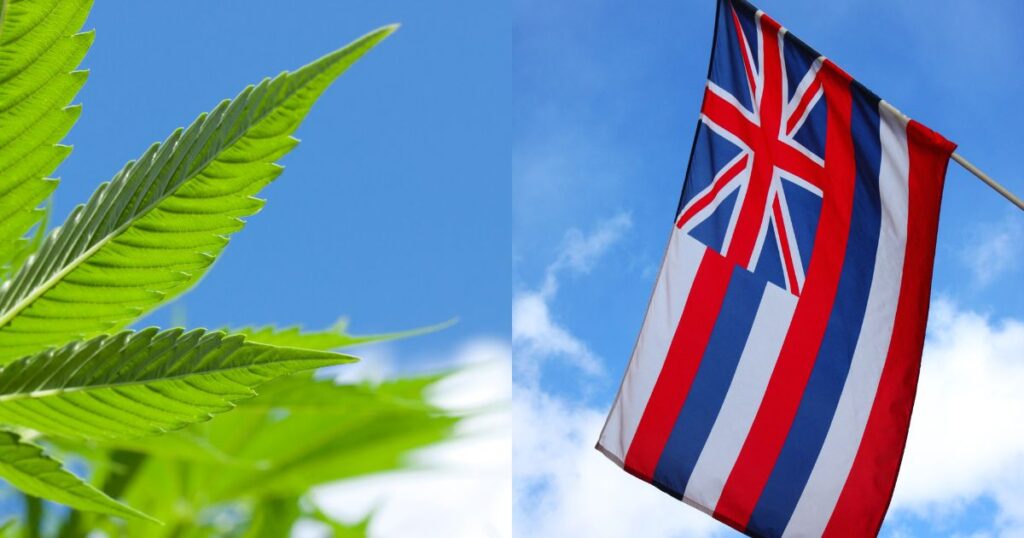Governor Josh Green stirred both surprise and speculation when he signed Hawaii’s HB 302 into law. The bill, initially on his veto list, represents a significant shift in how medical cannabis is prescribed and accessed in the state. While Green’s reversal came unexpectedly, the implications of this new law could be significant.
Understanding HB 302
HB 302 now being passed introduces two critical reforms to Hawaii’s medical cannabis program.
First, it allows medical providers to recommend cannabis for any “debilitating condition” where they believe the benefits outweigh the risks.
Essentially, physicians, advanced nurse practitioners, or hospice providers now hold broad discretion to prescribe medical cannabis based on their professional judgment. This newfound flexibility prioritizes patient-centric medical decisions over restrictive qualifying condition lists.
For those in hospice care or managing chronic illnesses not traditionally covered by cannabis programs, this is a game-changer.
Second, HB 302 authorizes certifications via telehealth. Patients across Hawaii, particularly those in rural or underserved areas, can now consult with a medical professional and receive certifications without the need for an in-person visit.
This modern approach creates more accessibility while reducing healthcare barriers for those most in need.
However, the bill also introduces a controversial provision. The Hawaii Department of Health (DOH) is now authorized to inspect patient medical records without requiring a warrant. This has created concerns over privacy violations, especially given cannabis’ continued status as a Schedule I substance under federal law.
Many fear that this could deter patients from seeking legal protections through the medical cannabis program, leaving them vulnerable to stigma and punitive actions.
Why HB 302’s Passage Is Surprising
What makes Governor Green’s decision to sign HB 302 particularly striking is its inclusion on his prior veto list. His objections centered on the medical records clause, which he labeled “a grave violation of privacy.”
This clause permits the DOH to request patients’ medical records and enforce compliance against healthcare providers who refuse to share them.
Green openly acknowledged the potential harms this could cause, including reduced participation in the medical program due to privacy concerns.
Yet, despite these warnings, he ultimately chose to sign the bill into law on June 27, 2025. No detailed explanation for Green’s change of heart was provided.
A Double-Edged Sword for Hawaii Cannabis Accessibility?
While HB 302 expands patient access, its duality cannot be ignored. The broadening of qualifying conditions and telehealth certification opens doors for many, but the invasive oversight provision could close those same doors for others.
Nikos Leverenz, of the Drug Policy Forum of Hawai’i, have called the bill both a win and a setback. According to Leverenz, via an email to Marijuana Moment “HB 302 reflects regression in protecting individual autonomy around cannabis at a time when progress should be the priority.”
Advocates have also pointed out the law’s potential to further complicate Hawaii’s medical cannabis system.
By allocating funds to law enforcement initiatives aimed at curbing illegal cannabis activity and introducing criminal penalties for unlicensed dispensary operations, the bill takes a strict regulatory stance.
Critics argue this approach risks alienating patients and providers in an already fragile system.
HB 302 Is A Step Forward for Terminally Ill Patients
Amid the controversy, one brighter note of HB 302 is its acknowledgment of terminally ill patients. The expanded criteria directly benefit those in hospice care by granting them access to medical cannabis for palliative purposes.
This aligns with a growing nationwide trend of accommodating medical cannabis use in end-of-life care, as seen in previously passed legislature like Ryan’s Law in California.
For many patients navigating the complexities of terminal illnesses, this addition is a rare and much-needed enhancement to their quality of life.
It allows providers greater freedom to offer compassionate care without the bureaucratic hurdles.
The Road Ahead
HB 302 lays the groundwork for significant evolution in Hawaii’s medical cannabis landscape. Nevertheless, the contentious elements of this law shed light on the larger challenges of cannabis regulation.
Balancing patient privacy, law enforcement, and public health remains a nuanced and complex endeavor surrounding cannabis legislation.
Meanwhile, policymakers must address lingering concerns. Among them is the need for statutory employment protections for registered cannabis patients, ensuring that participation in the medical cannabis program does not jeopardize their livelihoods.
Governor Green’s willingness to revisit HB 302 signals that the effort to refine Hawaii’s cannabis laws is far from over. Future legislative sessions will likely take on the task of addressing its shortcomings while preserving its gains.
















